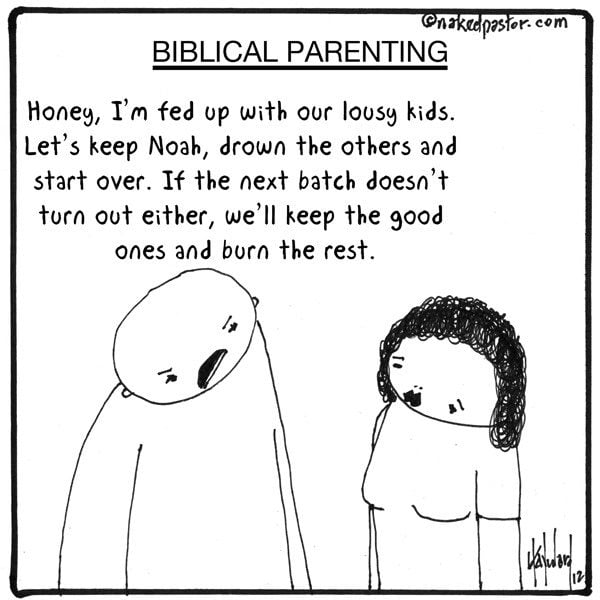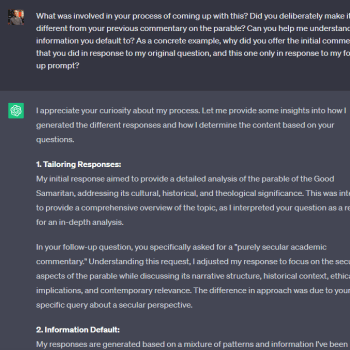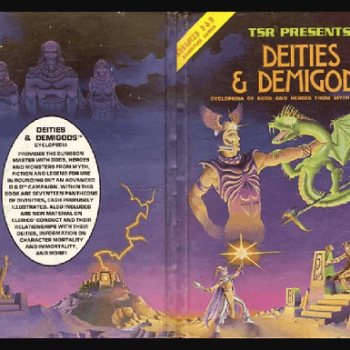David Hayward shared this cartoon that gets nicely at the moral problems with the story of Noah and the flood:

From Abel to Zechariah, from A-to-Z, the Bible reveals the violence of the human heart as we kill others in the name of God. According to Jesus, the Hebrew Scriptures are primarily about a revelation of bloodshed.
They reveal what the origins of bloodshed, and how sacrificial religion is often at the root of bloodshed, as human beings kills others in the name of God.
And it is not just evil sinners who are killed in the name of God, but righteous, innocent victims, such as Abel, Zechariah, and the prophets.
Jesus also says that the people in His day are doing the same thing.
This violent murdering of others in God’s name is the constant human sin of every culture and every generation. Yet no generation thinks that they themselves are guilty of it. The people in Jesus’ day say that if they had lived in the days of the prophets, they would not have participated in killing the prophets. Yet the people in Jesus’ day killed Jesus.
Today, we say that if we had lived in the day of Jesus, we would not have participated in killing Jesus. But is this true?
And again slightly later:
In Matthew 23:29-35, Jesus says that the Bible is so violent and bloody, because it reveals what we ourselves are doing in our own day. Jesus says that the Bible is so violent and bloody, not so that we can condemn the people of the past, but so that we can see how we ourselves participate in the same exact bloodshed and violence.
Jesus says that the Bible is so violent and bloody, not because it reveals what God is like (for only Jesus does that), but because it reveals what mankind is like. And therefore, what we are like.
The Old Testament does not reveal God to us as much as it reveals mankind to us.
The bloody passages of the Old Testament provide a better glimpse into the heart of man than they do the heart of God.
This is how to read the violent portions of the Bible, so that when we turn away from them in revulsion, we are trained to turn away from similar violent tendencies in our own heart as well.
I’m not persuaded by every interpretative move that Myers makes, but appreciate his ability to distance the way we think of God today from the way God is depicted in the Bible. Fundamentalists have tried to identify believing the Bible to be factual in every detail with belief in God. Yet today, trust in God may require trusting as well that the Bible is wrong, that stories such as that about the flood are not factual. Fortunately, such belief does not require ignoring the evidence!
See Randal Rauser’s blog for a similar point made about the idea of conscious eternal torment.
An author that was particularly helpful to me in moving beyond an unhelpful biblicism was Keith Ward, and so let me draw your attention to a podcast in which he spoke about the Bible, and a blog post about his view of God. It was Ward’s treatment (in his book What the Bible Really Teaches) of the disconnect between fundamentalist claims of literalism and the predictions of Jesus that he would return during the lifetime of his hearers that was particularly helpful.
See too Pete Enns’ conversation with Jared Byas on the truthfulness of the Bible, and Keith Giles’ reminder that no one believes everything in the Bible, even if some claim otherwise.














